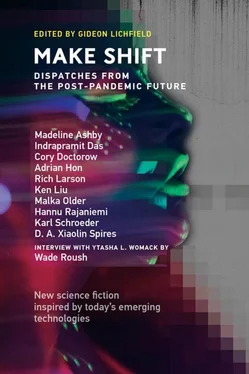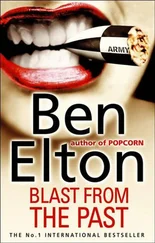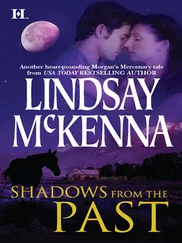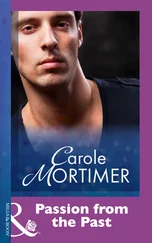Grandfather was letting all that go, because he was mad at Mom, for some reason Torsti could not understand. And that made Torsti angry, angry enough to do desperate things.
He opened his mouth to explain, but there were so many words that they just sat heavy in his chest, all jumbled up and stuck together, like a pile of twisted iron nails.
“No,” he said, finally. “I want you to live.”
“Well, that’s very touching,” Grandfather said, not understanding the difference. “But as you get older, you’ll understand that there are some decisions people have to make on their own. I have made mine, and I have to live—and die with them.” His voice broke, just for a moment. Then he continued in a harsher tone. “I don’t need a silly little boy coming here to take that away from me, just because he doesn’t understand how the world works.
“Now, I’m going to send a message to your mother.” Grandfather tapped at his phone laboriously. “We have our differences, but I don’t want her worrying herself sick. I’ll take you back to the mainland in the morning. With two boats it should be safe. You can sleep in the guest bed in the sauna, I already set it up—I’ll disinfect it all afterwards. And here’s a bunch of surgical masks.” He set a small pile of flat blue objects on the rock next to him. “I want you to wear them.”
He stood and started back up the path. “Come now. Since you’re here, you can help me chop some firewood. It gets cold at night.”
“You knew I was coming,” Torsti said. “How?” He had left his phone at home, and the ubiquitous surveillance of the old days had been banned at the start of the Reflection.
Grandfather shrugged.
“You have to be prepared,” he said. “Your Mom messaged me and told me you had gone missing. We don’t talk much, but some things you always share with family. I called an old friend at the Foundation, asked for transmission data. They barcode the viruses, you know. They don’t talk about it, but you can actually trace the contacts with the phone sequencers. It is still so early in the season that you left a pretty clear trail.”
He knew, Torsti thought. He didn’t have to let me come this far, he could have told Mom much earlier. He wanted me to come.
He followed Grandfather up the path toward the main house, keeping a respectful distance. Fallen leaves whispered beneath his feet, and he breathed in their earthy smell.
There was still hope.
THEY WALKED AROUND THE MAIN HOUSE TO THE FIREWOOD SHED. GRANDFATHERhauled out an armful of logs to the chopping block, and then his phone rang. He twisted awkwardly, trying to get it out of his pocket. Torsti moved forward to help, then remembered himself. The old man let the wood clatter to the ground, swearing, and pulled the device out.
“It’s your mother,” he said, frowning. He tapped it and held it up toward Torsti. “I think she just needs to see you are all right.”
Mom and Dad peeked at Torsti from the tiny screen. Mom’s eyes were tired, and her chestnut hair clung to her head, unwashed. Dad had an arm around her shoulders, tugging at his braided beard as he always did when he was anxious.
“Torsti,” Mom said. “I know I said you should have more adventures, but this is not what I meant.” She looked so small, so far away on the screen, so different from the full-sized opto projections he was used to.
“I’m fine, Mom. I’m coming back tomorrow.” He glanced at Grandfather, who was holding the phone. The old man’s eyes were squeezed shut as he listened.
“Tell… tell your grandfather thank you for me,” Mom said.
“I will.”
“Bring back some of that islander bread,” Dad said, a fake cheer in his voice. “We’ll see you soon.”
“Can I talk to your grandfather a bit?” Mom said.
Torsti nodded and waved.
Grandfather walked away, holding the phone to his ear.
“Yes, of course,” he said. “No, it’s no trouble. Of course. You both take care now.”
Grandfather ended the call, wiped the screen surface with a small alcohol pad and pocketed it. His face shield was clouded with steam. Sniffing, he swept his shirtsleeve across it.
“All right,” he said. “Let’s chop some firewood.”
In practice, what it meant was that Torsti chopped the firewood, at Grandfather’s amused direction. The handle of the axe stung his hands with every blow, and more than once he ended up having a log stuck to the axe blade and then bashing it against the block, lifting the whole thing like a giant, clumsy hammer.
“No, no, no,” the old man said. “There’s a trick to it.”
“What is it?” Torsti asked, huffing. There was a painful blister in the middle of his left palm. The surgical mask he now wore was moist with his breath.
“You have to catch the edge,” Grandfather said. “You go with the grain of the wood. It’s pointless to fight against it. It should feel like the wood wants to split. Come on. Try again.”
Torsti carefully positioned the birch log on the block and swung the axe. This time, he hit it just right, with the tip of the axe blade, and the log flew apart in two pieces effortlessly. He looked at it, surprised.
“See?” Grandfather said. “That’s the problem with everybody, these days. They don’t know the tricks anymore.”
Torsti looked at him. It felt strange to talk to someone wearing a mask that completely hid everything except the eyes. In a way, it felt more distant than seeing Mom on a screen. What is your trick, Grandfather? he wondered. Which way does your grain go?
“Where did you learn that?” he asked carefully.
“Well, now. It would have been in the time of Big Corona, back when your mother was little,” he said. “Not the virus, of course, not Pandemic One. The Coronal Mass Ejection Event, the solar flare. Nothing but wood to keep the heating going, back then. Had to learn quickly how to chop it.”
“What was it like?” Torsti asked, starting to gather the split logs into a pile. He knew the facts, of course. A massive blast of charged particles from the Sun had slammed into the Earth’s magnetic field, frying every electric circuit. But it felt like this was something Grandfather wanted to talk about.
The old man’s eyes were distant.
“Oh, it was a mess. You had satellites falling from the sky. No Internet. No electricity for six months. It was worse than the Pandemics. At least then we had ways of talking to each other. The Big Corona really isolated everybody. It was in the middle of the winter, too. People hoarded firewood. Even now, I keep too much of it around. Not good for my carbon credits, but once you go through something like that, your habits change.”
“I was in my forties. But it was only then that I learned how to be a grown-up. There is something about protecting your family that changes things. Not that anyone understands that, these days. After it was over, I made sure I prepared . Learned first aid, bought this place here, made sure we had canned food for years. Maybe I overdid the protecting with your mother a little bit, that’s why she grew up so wild. But you do what you have to do.”
His mask twisted, just a hint of a smile beneath.
“You know, we had this old chest of drawers, mahogany, from your great-grandmother. One night I took it to the back yard and chopped it into pieces. It kept us warm for a night, but your grandmother never forgave me for that.”
He sighed. “She loved the northern lights, though. We saw the best ones ever, the night it happened. We were all in a panic, trying to find candles in the pitch black, and then she told me to look outside. The city was all dark, and the sky was ablaze, with every color you could think of. We took your mother and went outside, stared at it for hours. It was the most beautiful thing she had seen in her life, she said, and because of the way she looked at it, it was.
Читать дальше












